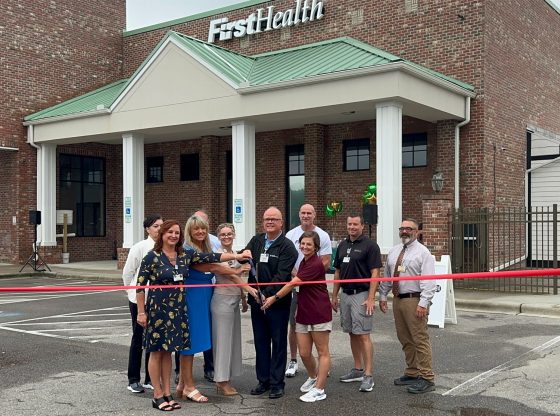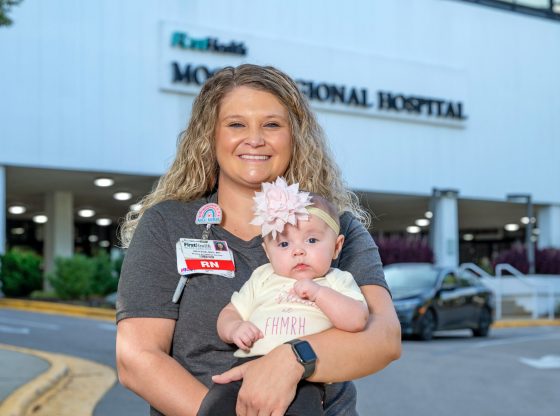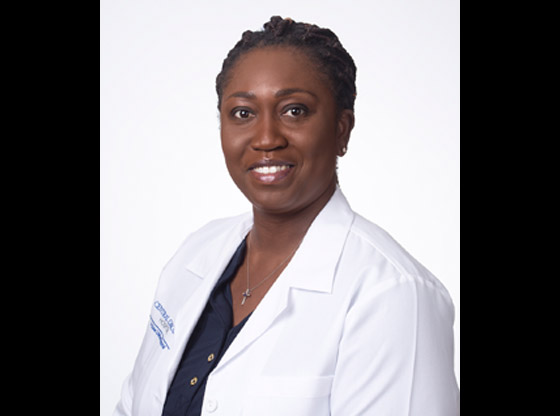When Sharron Wood’s fallopian tube cancer recurred last fall, her FirstHealth medical oncologist suggested a treatment option that hadn’t been available at the time of her original diagnosis in 2011.
She could continue her treatment with him or he could refer her to Michael Sundborg, M.D., the region’s only gynecological oncologist, at FirstHealth Gynecologic Oncology
Despite her respect and admiration for her original physician, Wood chose to move to Dr. Sundborg whose practice covers the spectrum of services for gynecologic cancers – from genetic testing, diagnosis and counseling to surgery, medical management, chemotherapy, clinical trials and long-term follow-up.
“We are just so blessed to have him here,” she says.
In September, FirstHealth of the Carolinas will join the nation in observing Gynecologic Cancer Awareness Month and by sharing information on cancers that affect the female reproductive organs (the cervix, ovaries, uterus, fallopian tubes, vagina, and vulva).
According to American Cancer Society estimates, 98,280 women in the United States will be diagnosed with cancers of the reproductive system this year.
While every woman is at risk of developing gynecologic cancer, risk factors can include obesity, menopause at a late age, smoking, never having been pregnant and the use of certain medications, such as birth control pills and estrogen. The risk of certain cancers also increases with age while the greatest risk for some, especially ovarian cancer, is family history.
Wood, who has tested positive for BRACA 1, the gene mutation linked to both ovarian and breast cancer, finds herself in the latter category.
“As my grandfather said, all of the women on my father’s side of the family died of ovarian cancer,” she says.
Another risk factor is human papillomavirus (HPV), which Dr. Sundborg describes as “probably the most important thing that’s neglected that leads to cancer” but can be prevented.
“The only anti-cancer vaccine is the one for cervical HPV,” he says, “but only 30 percent (of women) are being vaccinated.”
Worldwide, according to the National Institutes of Health, cervical cancer is the third most common cancer among women and the second most frequent cause of cancer-related death. A recent study by the University of North Carolina identified 10 North Carolina counties as having the highest cervical death rates in the country.
The reason, Dr. Sundborg says, concerns lack of access to care. However, he points out, FirstHealth of the Carolinas is “110 percent committed to patients with cancer.”
“We have a whole system for gynecologic cancer,” he says, “including nurse navigators and more recently a financial navigator, genetic testing – we do that here at FirstHealth.”
Also available are the support services headquartered at the Clara McLean House: CARE-Net, which provides trained volunteers with personal cancer experience to offer one-on-one support to new patients; a monthly journaling group for patients and survivors; yoga and meditation for patients and caregivers; “Look Good, Feel Better,” a monthly program that helps patients with appearance-related issues during treatment; and The Foundation of FirstHealth Cancer CARE Fund, which provides funding to help patients with treatment-related expenses.
Laura Kuzma of the Clara’s House staff coordinates these services.
“We also have a pre-surgical education class for breast cancer patients that meets twice a month at Clara’s House, and we work with oncology clinical trials as a site for their trial on cancer insomnia,” Kuzma says.

















